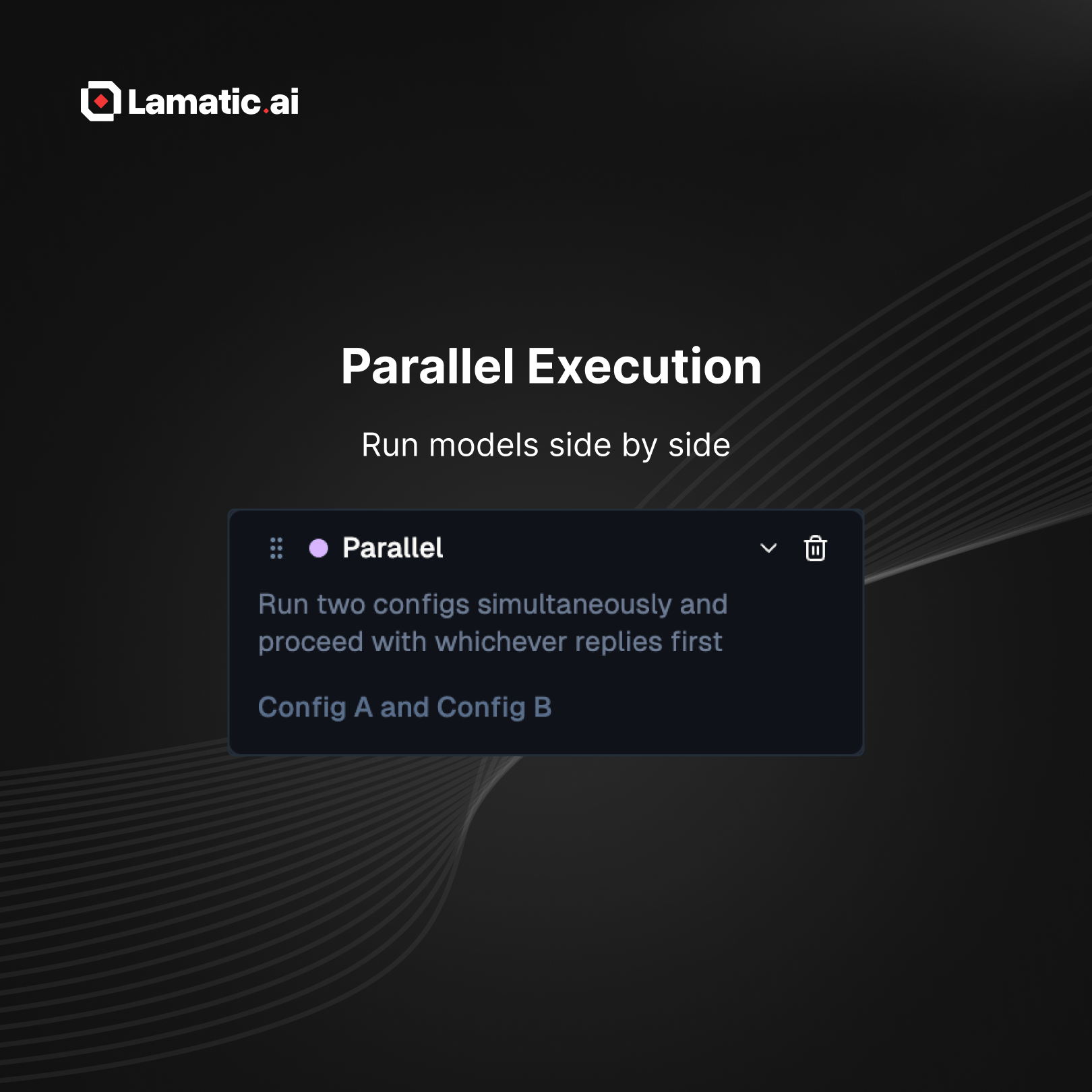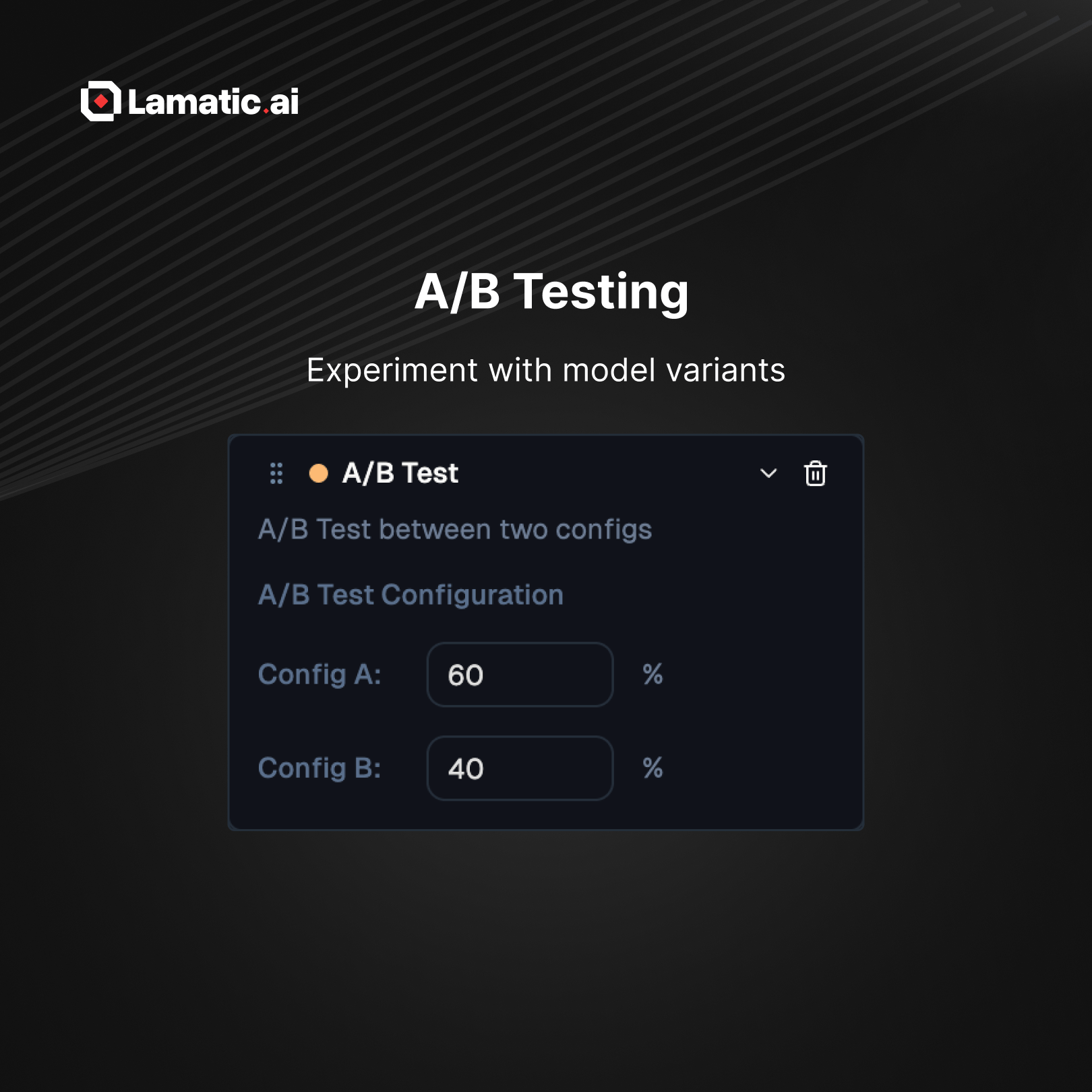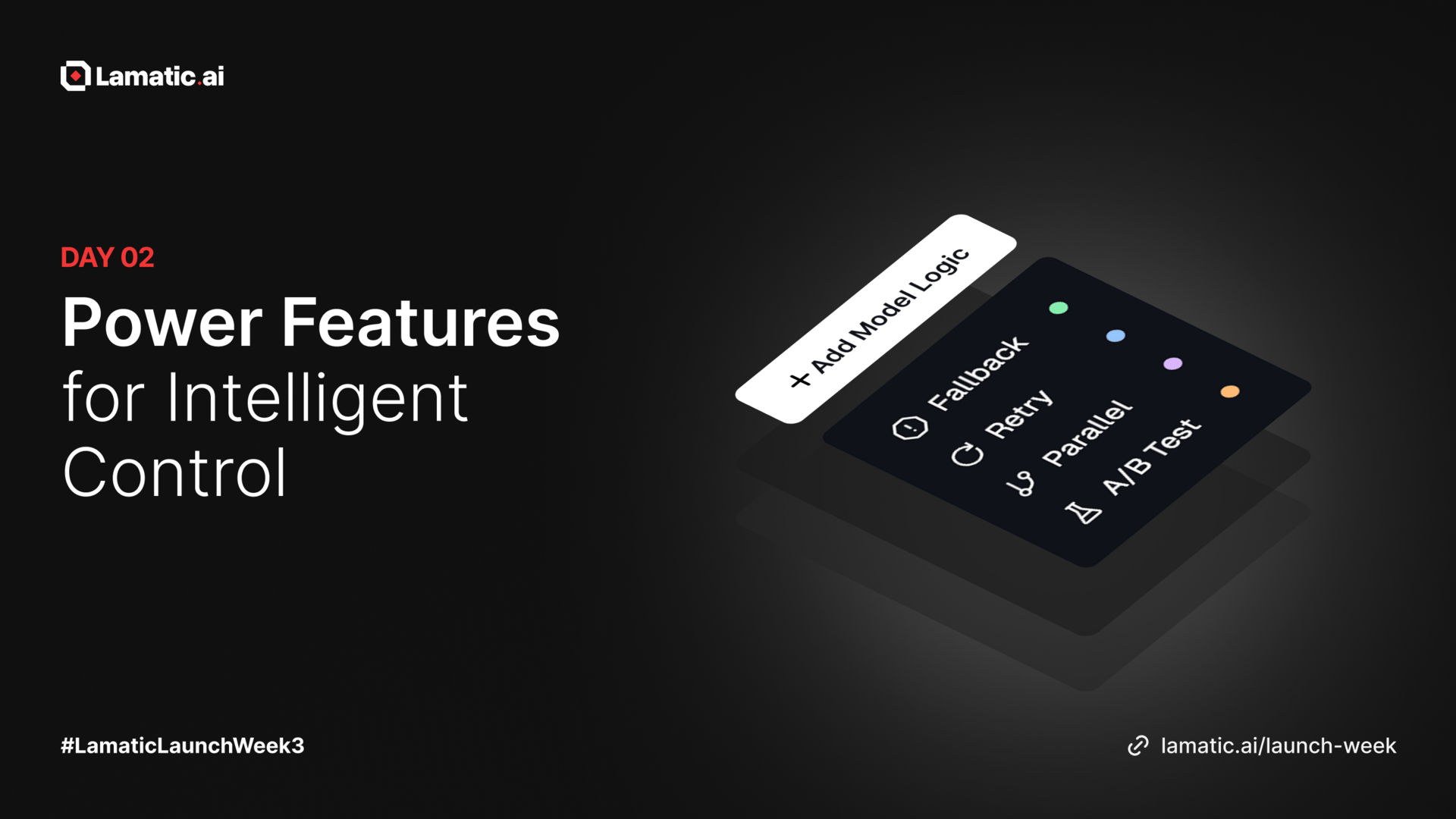
Table of Contents
Today’s the second day of Launch Week, we’re excited to roll out Model Logic, a major upgrade designed to give you deeper control over how your model nodes behave inside Lamatic Studio. From A/B testing to fallbacks and parallel execution, Model Logic introduces a new layer of intelligence and reliability to your automation workflows.
▶️ New video Premier
Ship Agents Like F1 pit Crew 🏎️
Introducing Node and Model Logics

Whether you're optimizing performance, handling failures gracefully, or experimenting with different model setups, Model Logic makes your flows smarter, faster, and more resilient.
Node Logic : Smart Agentic Flows
We’re also rolling out Node Logic, giving you deeper control over how any node behaves inside your flows. This upgrade makes your flows more dynamic, responsive, and flexible, perfect for building smarter automation with less effort.
With Node Logic, you can control how a node executes, handles errors, and routes execution based on conditions. Here’s what you can now do:
Fallback: Switch to a backup node if the primary one fails or times out
Retry: Automatically retry execution with custom attempts and delays
Go Back: Route execution back to earlier nodes based on conditions
Parallel: Run multiple node configurations at the same time
A/B Test: Split execution between two node setups with configurable percentages
Checkout the docs
Model Logic : Smarter Model Routing
We’re excited to introduce Model Logic, a powerful upgrade that gives you more control over how your model nodes behave in Lamatic Studio. From A/B testing and fallbacks to parallel execution, Model Logic makes your workflows smarter, faster, and more reliable.
Whether you’re improving performance, handling errors, or testing different model setups, Model Logic helps you build stronger and more flexible AI flows.
Here’s what you can now do with Model Logic:
Fallback — Switch to a backup model if the primary one fails or times out
Retry — Automatically retry model execution with custom attempts and delays
Parallel — Run multiple model configurations at the same time
A/B Test — Split traffic between two model setups with your chosen percentages
Checkout the docs to learn more
How to Use
You can now add logic directly within any Model Node:
Select a model node
Open Config → MODEL → Logic
Click + Add Logic
Choose from:
Fallback
Retry
Parallel
A/B Testing
Configure and save
Multiple logic types can be combined for advanced behavior (e.g., Retry + Fallback).
Logic Types
1. Fallback Logic: Automatic Backup When Things Go Wrong

im
Ensure uninterrupted execution by automatically switching to a backup model when the primary model times out or fails. Perfect for high-availability workflows and mission-critical automations.
Use when:
✔ Primary models may sometimes delay or fail
✔ You need a reliable fallback strategy
Checkout the docs
2. Retry Logic: Automatic Recovery from Temporary Failures

Handle transient issues like rate limits or intermittent network errors by retrying model execution with configurable attempts and delays.
Use when:
✔ APIs occasionally timeout
✔ You want automatic recovery without manual intervention
Checkout the docs
3. Parallel Execution: Run Models Side by Side

Execute multiple model configurations at the same time. Compare outputs, fuse insights, or improve speed by running tasks concurrently.
Use when:
✔ Comparing multiple models
✔ Combining outputs from different model types
✔ Reducing total execution time
Checkout the docs
4. A/B Testing: Experiment with Model Variants

Split traffic between two model configurations using customizable percentages. Test prompts, models, or fine-tuned versions before rolling them out fully.
Use when:
✔ Testing new model setups
✔ Release in steps
✔ Performance comparison and benchmarking
Checkout the docs
Pro Tips
Use Fallback with a lightweight backup model for maximum reliability
Set safe retry delays to avoid hitting rate limits
Add safeguards for Go Back loops to prevent infinite cycles
Run A/B tests long enough to produce meaningful insights
Use Parallel only when you genuinely need both outputs
Feedback API

We’re excited to introduce the Feedback API, a simple yet powerful way to collect user feedback directly from your flows, especially when using GraphQL APIs. This helps you understand user satisfaction, track response quality, and continuously improve your AI workflows.
With the Feedback API, you can now:
Collect ratings, comments, and custom metadata for any flow execution
Automatically send feedback using the
requestIdreturned from your GraphQL API callView all submitted feedback inside the Reports section
Use insights to optimize prompts, tune models, and improve overall user experience
Checkout the docs
🔔 Launch Timeline

🎉 Events
We are doing virtual and in person events throughout the week. We would love for you to join us.
Build Reliable Agent | Live Launch Webinar
📍Online → Today
Product Hunt Launch
📍Online → November 21




